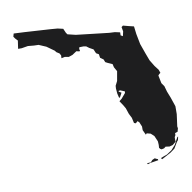Social Equity
The cannabis consultants at Point Seven Group are experts in US social equity markets. We have successfully helped our social equity clients obtain cannabis licenses, design dispensaries, build identifiable cannabis brands, and operate compliant cannabis businesses. Our team of cannabis experts can help you reach your social equity business goals in US cannabis markets!
WHAT IS SOCIAL EQUITY?
While the terms “social equity” and “community engagement” get thrown around a lot in the cannabis industry, few actually take the time to consider the true intent and objective of these programs. Social equity in the cannabis industry does not mean equality, fairness or diversity, but rather allows those who have been disproportionately impacted by The War on Drugs, either through an arrest or living in a disadvantaged community, to more easily participate in the legal cannabis industry.
WHICH STATES HAVE SOCIAL EQUITY PROGRAMS?
Most of the first states to legalize cannabis, including Colorado and Washington in 2012, did not include provisions that state licenses to grow, process, or dispense marijuana would be distributed equitably or would positively impact disadvantaged communities. Only six of the 18 states that have enacted some cannabis laws since 2016 have taken measures to increase diversity in their programs.
If the objective was diversity or equality, the programs would be much more driven towards increasing the variety and equal status in rights and opportunities - but we have yet to see any state program nail this yet. Because efforts toward social equity are still in their infancy, many are concerned those who are to be empowered could reap the least amount of benefits, remain vulnerable and feel disconnected or forgotten.
OUR SERVICES FOR SOCIAL EQUITY APPLICANTS
SOCIAL EQUITY IN CALIFORNIA

California has been a market leader in the vein of cannabis social equity programs. California has a state-level program to help local governments with their equity ordinances to provide loans, grants, and technical assistance to minority and economically disadvantaged business owners. On the local level, only Los Angeles, San Francisco, Oakland, and Sacramento have taken it upon themselves to also implement social equity programs, with varying degrees of successes and failures.
Sacramento: Depending on the type/tier, equity applicants shall be eligible for services offered by the business support center including the expungement of criminal records, priority conditional use permit and business operations permit processing, and fee waiver or deferral. Other components of the program, such as criteria to qualify for any of the services offered as well as the various levels of support available to participants, are still being developed through a collaborative effort with local community organizations.
Oakland: Equity Applicants shall be eligible for participation in the Equity Assistance program, which will include industry-specific technical assistance, business ownership technical assistance, no interest business start-up loans, and waivers from city permitting fees.
San Francisco: Equity applicants are entitled to priority permit processing.
Los Angeles: Depending on the type/tier, equity applicants shall be eligible for waived fees, technical assistance, expungement assistance, business and compliance training, and access to the Industry Investment Fund (if established).
SOCIAL EQUITY IN COLORADO

Colorado was a pioneering state to legalize recreational cannabis in 2012. Many early advocates were nervous about the passage of the referendum if they added provisions for automatic expungements and other social justice measures. A 2019 state report found marijuana arrest rates remained higher among blacks than whites, and state and city officials have made some efforts to address the issues. According to a new proposal in Colorado that seeks to redefine who qualifies as a social equity applicant, a social equity licensee could participate in the state’s accelerator program, which provides mentorship opportunities and financial incentives for prospective cannabis entrepreneurs.
SOCIAL EQUITY IN FLORIDA

Florida did not include any social equity provisions in the originally passed medical marijuana law that created six fully vertical operators. The Governor of Florida signed an update to the state’s medical marijuana laws in June 2017 with four equity-related provisions in this law. They range from educating minorities about medical marijuana use to setting aside one of the ten new medical marijuana treatment center licenses for a recognized class member of the Black Farmers and Agriculturists Association-Florida Chapter. The overall goal is to have all marijuana treatment centers to demonstrate the involvement of minority persons and business enterprises or veteran business enterprises in ownership, management, and employment.
SOCIAL EQUITY IN MARYLAND

Maryland was one of the first states to show some interest in social equity provisions geared towards equitable representation in the license holders. The state regulators intended to have minority license holders, but after the first round of licenses were issued to solely white men the cannabis commission was sued for failing to meet specific diversity mandates. The state then released a second round of licenses with more intentional diversity provisions, but has yet to actually pan out with still a majority of licenses being held by white men.
SOCIAL EQUITY IN ILLINOIS

SOCIAL EQUITY IN MASSACHUSETTS

Massachusetts created a social equity program where applicants must meet specific requirements to demonstrate living in an “area of disproportionate impact” or have a past drug conviction, or be a spouse or child of someone who does. Regulators gave licensing-review priority to black- or hispanic-owned businesses and aspiring marijuana entrepreneurs from certain areas, among other provisions. To date, no applicants to the Economic Empowerment program have received final business licenses despite it being four years since the state legalized cannabis and two years since legal sales began.
SOCIAL EQUITY IN MICHIGAN

Michigan adopted social equity provisions with their adult-use legislation that promotes and encourages participation in the cannabis industry by individuals from communities that have been disproportionately impacted by cannabis prohibition and enforcement. To support this initiative, Michigan’s marijuana regulatory agency established a social equity team, which provides one-on-one assistance with the social equity application, assistance preparing and completing the adult-use application, and education on marijuana rules and regulations as well as helping to connect participants with resources regarding the program.
SOCIAL EQUITY IN OHIO

Ohio’s medical marijuana law requires the Department of Commerce and the Board of Pharmacy to issue not less than 15 percent of medical marijuana cultivator, processor, laboratory, and retail licenses to members of the following economically disadvantaged groups: Blacks or African Americans; American Indians; Hispanics or Latinos; and Asians. If an insufficient number of eligible applicants meeting these requirements apply for licensure, the department and board may issue licenses to general applicants according to usual procedures. The law’s distinct race benchmark raises constitutional questions, but so far has not been challenged in court.
SOCIAL EQUITY IN OREGON

SOCIAL EQUITY IN PENNSYLVANIA

As part of Pennsylvania’s intent to promote diversity and the participation of diverse groups in the marijuana industry, the law contains a number of equity provisions related to diversity goals. The Department of Health is required to adopt policies that ensure equal opportunity for diverse groups in permitting, and that promote equitable access to the workforce for diverse individuals. In line with this objective, the Department of Health must conduct outreach to diverse groups, provide notice of participation opportunities on its website, include language in applications that encourages applicants to contract with diverse groups, and submit annual reports detailing the participation level by the percentage of diverse groups and a summary of ways diverse groups are utilized by permittees.
SOCIAL EQUITY IN WASHINGTON


